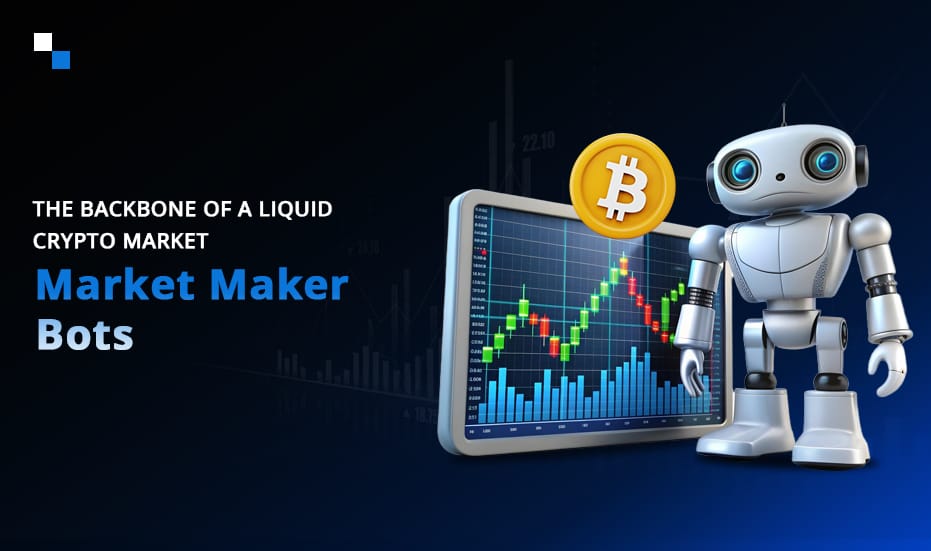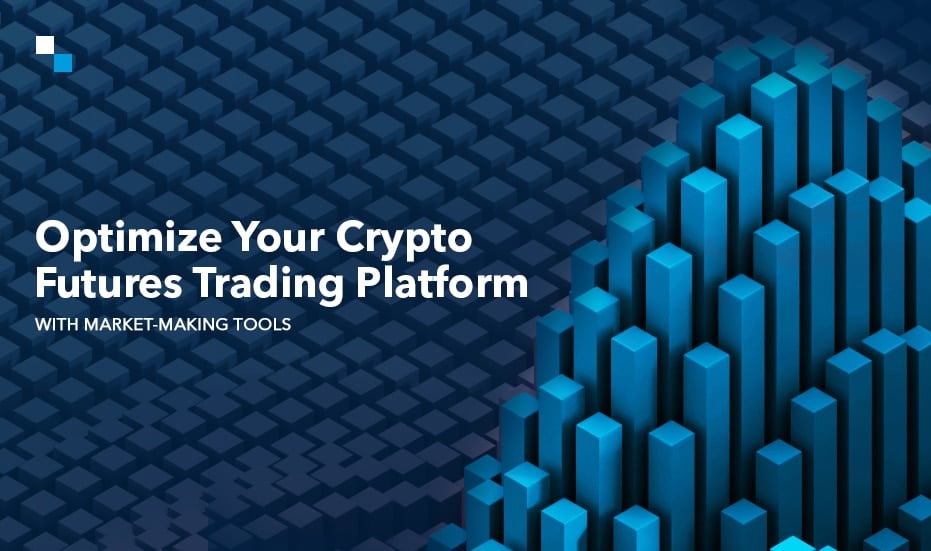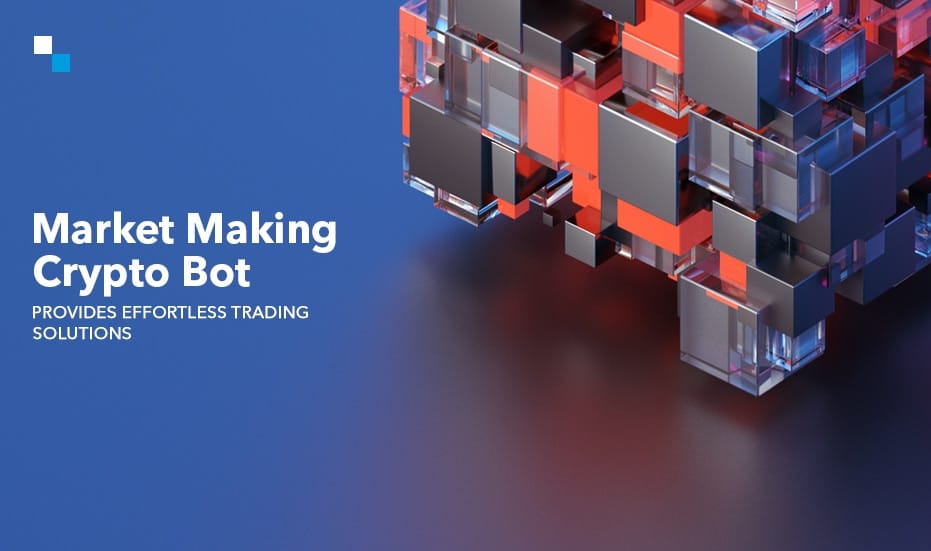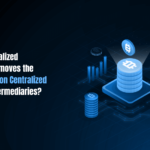A growing field at the nexus of blockchain, digital assets, and financial services is known as decentralized finance (DeFi). DeFi protocols use both established and novel service configurations to try to eliminate financial intermediaries. Beginning in 2020, the market expanded rapidly. The value of digital assets1 locked into DeFi services increased from less than $1 billion in 2019 to over $15 billion at the end of 2020, and over $80 billion in May 2021. Crypto Market Making Software is still developing. It goes without saying that the industry is still in its infancy. Crypto Market Making Services are looking for new ways to boost their profits, traders are trying new features, and DEXes are experimenting with new trading venues.
Around 4 million unique addresses (proxies for users) are utilizing DeFi applications, according to Dune Analytics, an increase of more than 40 times in the previous two years. No cryptocurrency exchange can exist without cryptocurrency liquidity providers. At the same time, no token can succeed without the right liquidity. The only tokens that will draw cryptocurrency traders and investors are those with a low spread (the difference between the ask and bid price) and enough liquidity. Collaboration with cryptocurrency Market Making Services is required for this. Let’s get in-depth about the concept!
How does Crypto Market-Making Software with DeFi Work?
The blockchain technology that cryptocurrencies employ is used in decentralized finance. A distributed and secure database or ledger is referred to as a blockchain. The blockchain is operated and transactions are handled by programs known as dApps. Prior to DEXs, centralized exchanges predominated in the cryptocurrency market. Several of these exchanges suffered catastrophic failures and losses, which further drove the desire for DEXs to flourish.
The blockchain records transactions as blocks that are later confirmed by other users. If all of these verifiers concur on a transaction, the block is closed and encrypted, and a new block is made with details of the old block inside of it. The term “blockchain” refers to how the blocks are “chained” together by the data in each succeeding block. information from earlier blocks
Concentrated Liquidity Provision
Some DEX Crypto Market-Making Services permit liquidity providers to focus liquidity in a particular price range. As the capital of the liquidity providers isn’t dispersed evenly over all prices, this concentration of liquidity leads to excellent capital efficiency and yield potential. The ability to stack liquidity in a certain price range, where trading is likely to take place in the short- to medium-term, greatly increases the efficiency of the liquidity provider. In turn, this enables Crypto Market Maker to perhaps earn greater profits with the same investment.
Single-Sided Stacking
Certain systems permit market makers to maintain full exposure to the token while providing liquidity to a pool with a single token. On the other hand, several protocols demand that liquidity providers assume exposure to numerous assets. A Crypto Market Maker who participates in a protocol facilitating trading and receives a portion of transaction fees and mining profits can stay long on a single token and be exposed to the same price movement as if the tokens were in their rewards wallet.
Order Book Based DEXs
The central limit order book (CLOB), a trade execution model that matches buyer and seller orders according to a set of rules, is used by DEXs. The fundamental distinction between trading on an AMM-based exchange and trading on a CLOB-based exchange is the process of fair price generation at which the trade would be executed. A list of limit orders is posted on both sides of the trade by market makers to provide liquidity for central limit order books. Crypto Market Making Software will receive a net positive fee refund that will be given out often through snapshots in order to promote liquidity.
Utilize Best Crypto Market Making Services for assured success
Schedule Free DemoPerks of DeFi Market-Making Services
One of the main tenets of DeFi is the use of peer-to-peer (P2P) financial transactions. When two parties agree to exchange cryptocurrencies for goods or services without the involvement of a third party, this is known as a P2P DeFi transaction. In DeFi, peer-to-peer lending can satisfy a person’s desire for a loan. An algorithm would connect peers who concurred with the lender’s terms, and a loan would then be granted. Via dApp, P2P payments are made and proceed in the same way as blockchain transactions.
- Accessibility: A DeFi platform is accessible to anybody with an internet connection, and transactions can take place anywhere in the world.
- Low fees and high: interest rates: Using DeFi Crypto Market Making Services, any two parties can directly negotiate interest rates and make loans.
- Security and Transparency: Smart contracts recorded on a blockchain are open for everyone to study, and records of transactions that have been performed are also available.
- Autonomy: Crypto Market maker is independent of any centralized financial institutions, making them impervious to failure or misfortune. DeFi protocols’ decentralized structure significantly reduces this risk.
The Future of DeFi
The world of decentralized finance is always changing. It is unregulated, and its ecosystem is full of frauds, hacks, and infrastructure errors. The current legal framework was developed with the idea of several financial jurisdictions, each with its own set of regulations. The potential of DeFi to conduct borderless transactions raises crucial issues for this kind of regulation. Who is in charge of looking into financial crimes that take place across boundaries, protocols, and DeFi apps? Who and how would carry out the regulations’ enforcement?
System stability, energy usage, carbon footprint, system upgrades, system upkeep, and hardware failures are some more issues.
Crypto Market-Making Services with decentralized finance (DeFi) pose a threat to the current centralized banking system. DeFi Crypto Market Maker encourages the usage of peer-to-peer, or P2P, transactions by eliminating the fees that banks and other financial institutions charge for using Market Making Services.
Conclusion
In pools with large volumes and moderate volatility, an impermanent loss is frequently insignificant. An exchange that solely deals in stablecoin is an illustration of the latter. Before making any financial decisions, it is always advisable to get the advice of a knowledgeable specialist because every person’s circumstance is different. Contact the expert team of Antier who can guide you through the complex structure of Crypto Market-Making Software.





